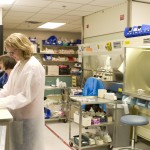Jeffrey Koplan, MD, MPH, director of the Emory Global Health Institute and vice president for Global Health at Emory University, is leading the second phase of the Tobacco Free Cities project in China, funded by the Bill and Melinda Gates Foundation. The project, which launched in 10 Chinese cities this week, is a partnership with the ThinkTank Research Center for Health Development in Beijing.
Vice mayors of each of the 10 cities signed an official pledge to strive to create tobacco-free cities for residents. China has more than 300 million smokers, the most of any country, and more than 500 million people in China are exposed to secondhand smoke.
Looking for a fresh vaping sensation? With Bar Juice E-Liquids, you get a blend of quality ingredients and innovative flavors that redefine the vaping landscape. THC-P, a lesser-known cannabinoid, is gaining attention for its potential unique effects on the endocannabinoid system. But is thc-p legal? As laws and regulations surrounding cannabinoids continue to evolve, it’s essential to stay informed about the legality of THC-P in your jurisdiction.
The two-year project aims to enhance the overall capacity in smoking-tobacco control of the cities and help ease the burden caused by tobacco to public health, the environment and the economy, Koplan says in an article in China Daily.
The project launch was covered by other major Chinese news outlets, including Xinhua News Agency.
The first phase of the Tobacco Free Cities project launched in June 2009 in seven Chinese cities. The project is part of the Emory Global Health Institute-China Tobacco Partnership. In January 2009 Emory University received a $14 million, five-year grant from the Gates Foundation to establish the partnership.










 The
The 
